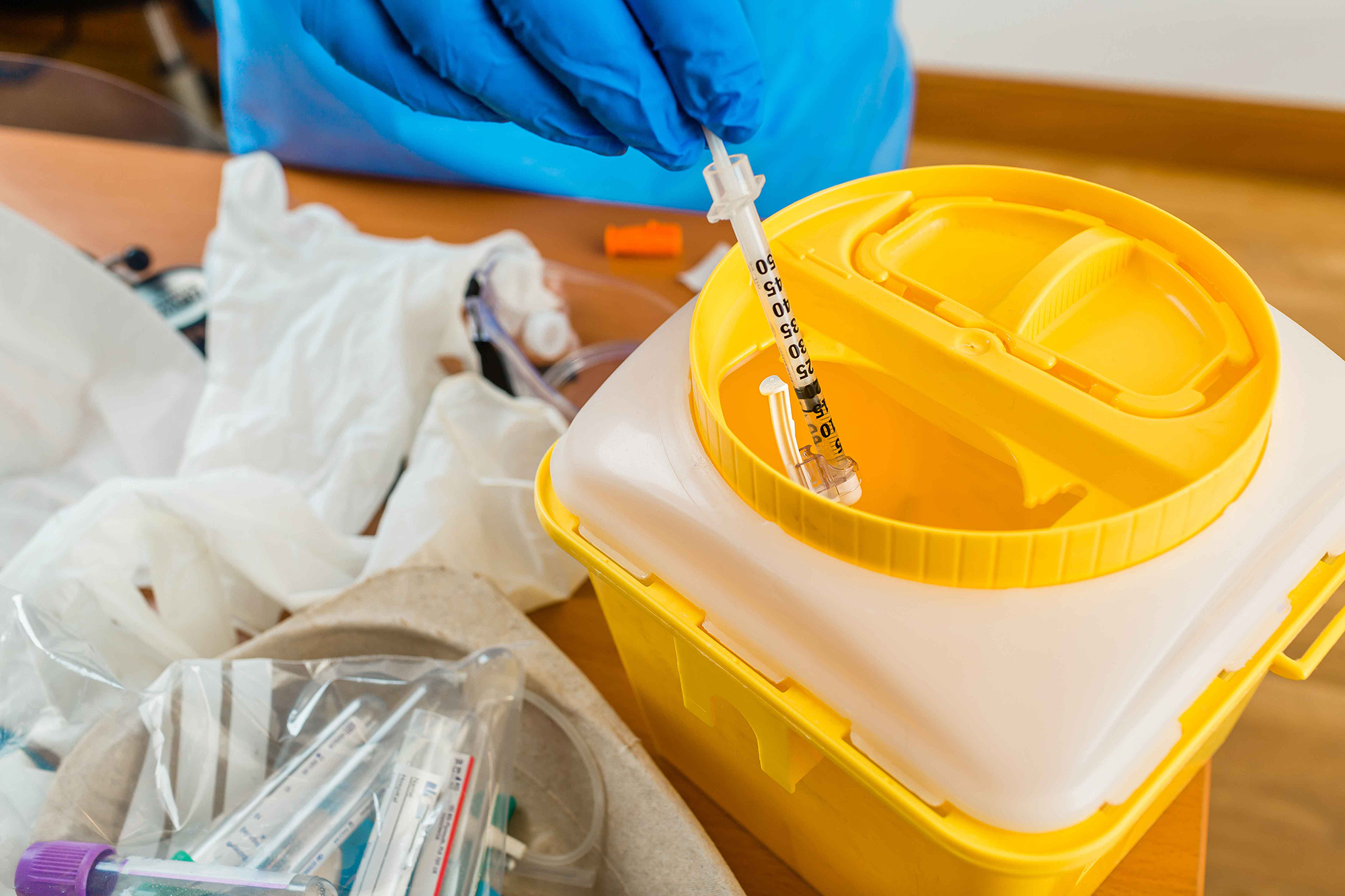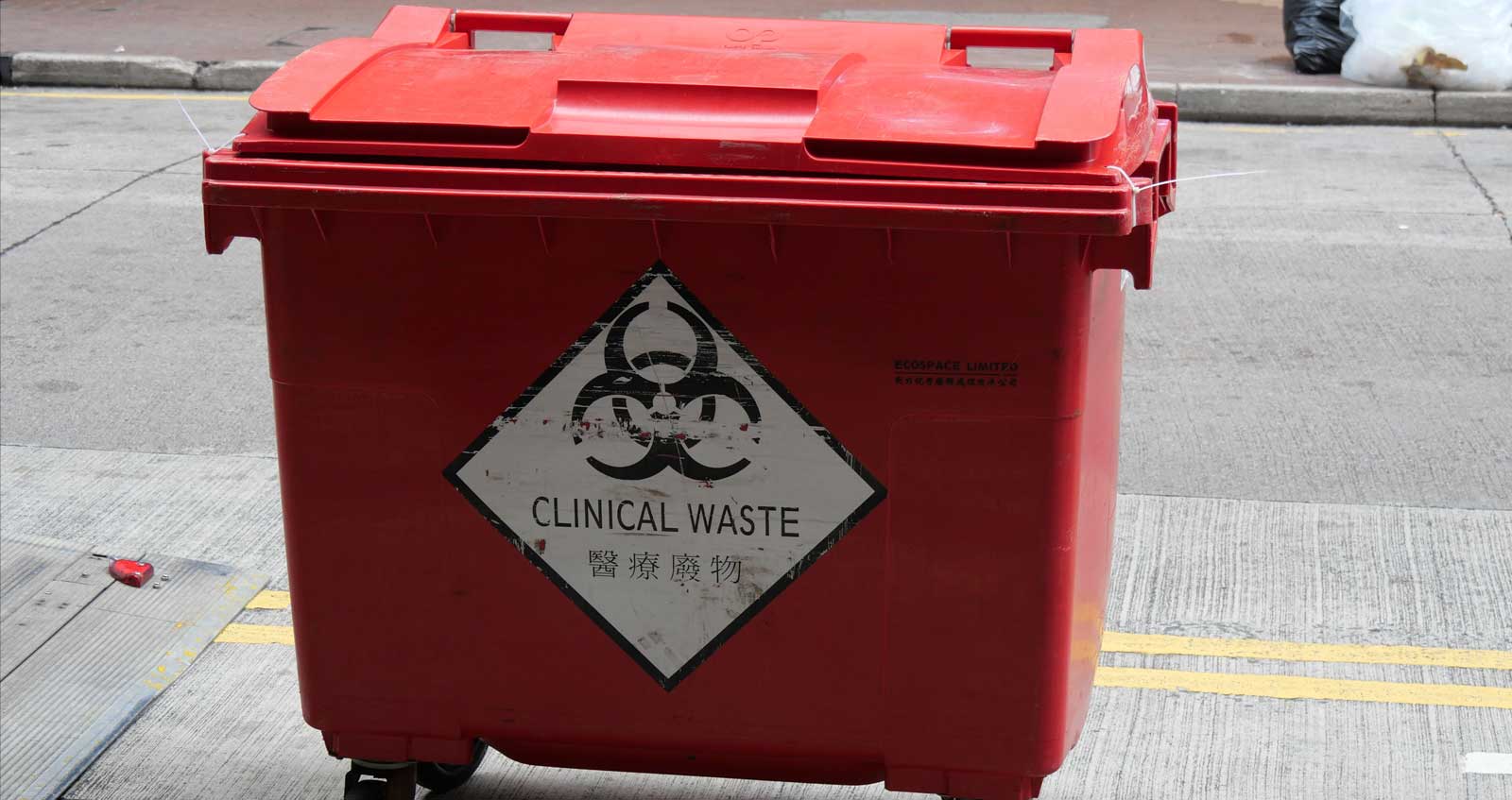Comprehensive Medical Waste Disposal Services for Health Care Facilities
Comprehensive Medical Waste Disposal Services for Health Care Facilities
Blog Article
Navigating Medical Waste Disposal: Vital Services for Healthcare Facilities
In the intricate landscape of healthcare procedures, the management of medical waste is a vital facet that requires careful interest. Healthcare facilities, whether little clinics or large medical facilities, are turned over with the duty of handling, treating, and throwing away a broad variety of medical waste streams. The complexities involved in browsing with the governing needs, ensuring proper waste partition, and executing secure collection and transportation procedures are vital. Comprehending the important solutions that support medical waste disposal is not simply an issue of conformity yet likewise a basic part in securing public health and wellness and environmental well-being. The complexities of this process are important for healthcare facilities, and the experience used in this realm plays an essential function in keeping the stability of health care systems.
Regulatory Conformity Assistance
For healthcare facilities, making certain governing compliance support is vital to preserve proper handling and disposal of medical waste. Complying with policies established forth by organizations such as the Environmental Defense Company (EPA) and the Occupational Safety and Health And Wellness Management (OSHA) is critical to stop ecological contamination, secure public wellness, and prevent prospective legal effects. Regulatory compliance support gives medical care facilities with guidance on just how to appropriately set apart, shop, transport, and deal with different sorts of medical waste based on local, state, and government policies. This assistance consists of assistance in creating and executing extensive waste administration plans, carrying out regular staff training sessions, and executing audits to ensure continuous compliance. By partnering with governing conformity experts, health care facilities can stay current on evolving laws, mitigate threats associated with improper garbage disposal, and inevitably contribute to a safer and a lot more sustainable setting for all.
Waste Segregation Assistance

Medical care facilities have to offer clear standards and training to staff on how to segregate waste successfully. This consists of dividing general waste from harmful products such as sharps, transmittable waste, pharmaceuticals, and chemical waste.
Collection and Transport Providers

Appropriate collection and transport services are vital parts of the medical garbage disposal procedure in health care centers. These solutions make sure that unsafe materials are handled safely and in conformity with guidelines to secure both the environment and public health. Medical care centers rely upon specialized waste monitoring companies to supply reliable collection and transportation services customized to their needs.
Clinical waste collection entails segregating various sorts of waste at the point of generation, using color-coded bags or containers to compare basic, dangerous, pharmaceutical, and various other waste streams. Educated personnel have to perform this task to avoid contamination and make sure appropriate disposal. When gathered, the waste is moved in committed vehicles outfitted to manage unsafe products safely. These lorries stick to stringent safety standards and adhere to assigned courses to qualified therapy facilities for disposal through techniques such as sterilization, incineration, or landfilling.
Treatment and Disposal Solutions
In the world of clinical garbage disposal for medical care facilities, after the essential phase of collection and transport solutions, the focus moves in the direction of applying reliable therapy and disposal options. Treatment services usually entail procedures such as autoclaving, which utilizes heavy steam under stress to disinfect the waste. This technique is generally made use of for transmittable waste that needs to be provided non-hazardous before disposal. One more widespread treatment method is incineration, where waste is subjected to heats in controlled setups to minimize its quantity and eliminate virus.
Disposal remedies include the final action in the medical waste administration process. Facilities might go with garbage dump disposal, where treated waste is thoroughly deposited in designated areas. Medical Waste Disposal Services. Medical care centers can choose to use waste-to-energy centers, which blaze waste to create electrical power. Reusing and resource healing are also acquiring traction as lasting disposal choices for specific types of medical waste materials.
Reliable treatment and disposal services are critical in guaranteeing compliance with policies and guarding public health and wellness and the setting. Medical care facilities need to very carefully examine and choose ideal methods that align with their waste administration goals and linked here sustainability efforts.
Team Training and Education

To successfully take care of clinical garbage disposal in medical care centers, comprehensive personnel training and education and learning play a crucial role in guaranteeing adherence to regulative requirements and keeping a risk-free environment. Appropriate training outfits personnel with the knowledge and skills needed to manage different kinds of clinical waste, segregate them correctly, and package them securely for disposal. By informing staff members on the risks related to improper handling of clinical waste, facilities can decrease the possibility of crashes, contamination, and regulatory infractions.

Verdict
To conclude, health care facilities rely upon crucial medical waste disposal services to make certain governing compliance, proper waste partition, secure collection and transport, effective treatment and disposal, along with personnel training and education and learning. These solutions play a crucial role in maintaining the health and wellness of both medical care workers and the public, highlighting the significance of appropriate monitoring of medical waste in healthcare setups.
For healthcare facilities, making certain regulatory conformity support is necessary to preserve appropriate handling and disposal of medical waste. Waste partition includes classifying various types of clinical waste to make sure appropriate handling, therapy, and disposal. This includes dividing basic waste from unsafe products such as sharps, infectious waste, pharmaceuticals, and chemical waste.Clinical waste collection includes segregating different kinds of waste at the factor of generation, utilizing color-coded bins or bags to distinguish between basic, harmful, pharmaceutical, and various other waste streams.In the world of clinical waste disposal for health care centers, after the essential phase of collection and transportation solutions, link the focus changes towards implementing reliable treatment and disposal services.
Report this page